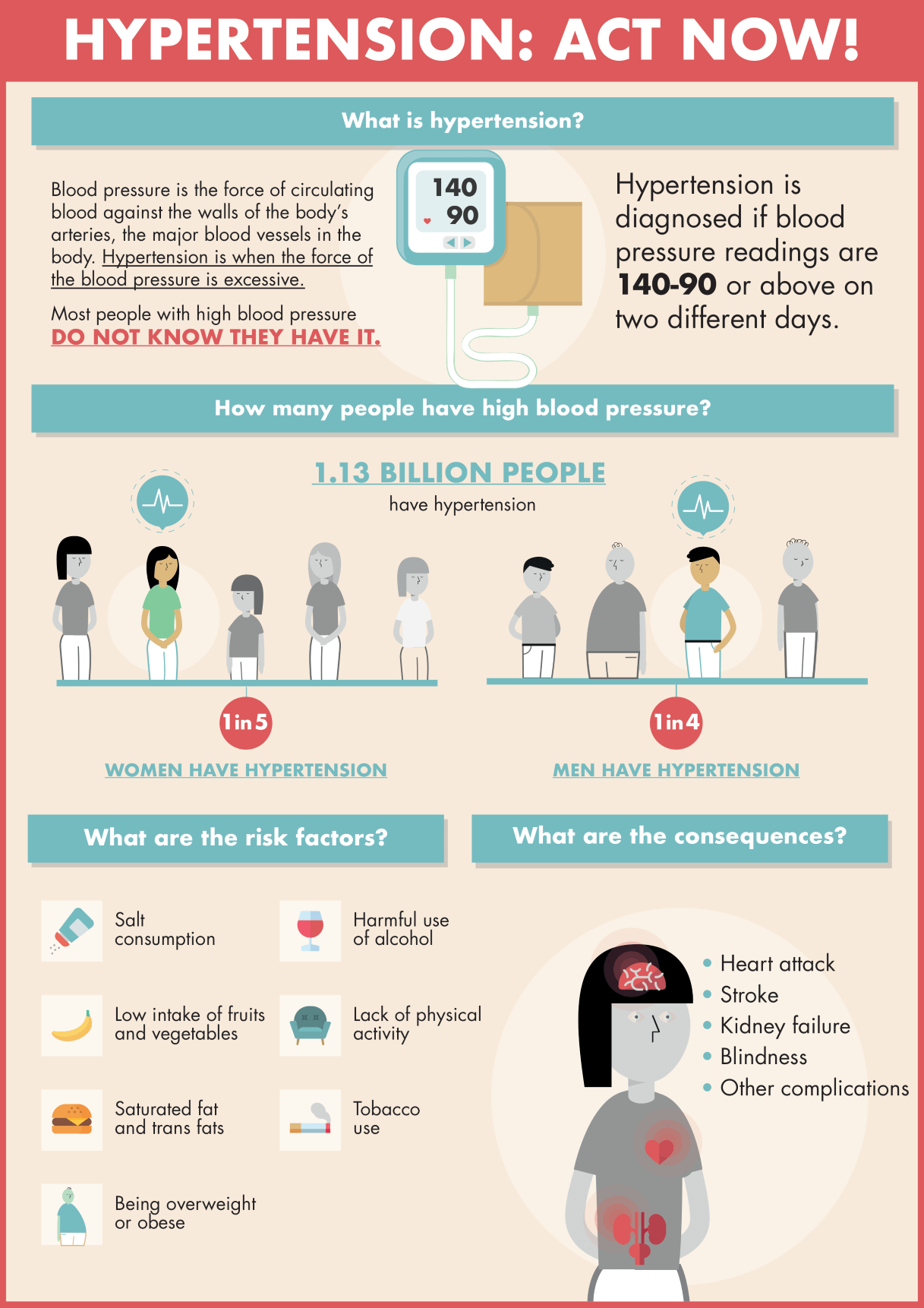Hypertension is another name for high blood pressure. It can lead to severe health complications and increase the risk of heart disease, stroke, and sometimes death. Blood pressure is the force that a person’s blood exerts against the walls of their blood vessels. In this article, you will find what is hypertension, its causes, symptoms and management.
Hypertension Causes Symptoms Management
Blood pressure is the measurement of the blood where it passes through your arteries. So when it is high, it is called hypertension. Why are we talking about hypertension? Because India is soon going to be the hypertensive capital of the world. Nearly 1.2 billion people across the world are diagnosed with hypertension. This is just the tip of the iceberg because many patients do not know that they have hypertension.
Many patients have just recorded their blood pressure at home and found that the readings are high. Most of them do not have any symptoms. They reach the hospital only when they have complications like stroke, heart attack or kidney failure.
How Blood Pressure Is Monitored?
When we talk about hypertension, you would have heard of numbers 120 by 80, 200 by 100, and 80 by 60. What are these? Blood pressure is monitored by two numbers. The upper one is called systolic and the lower one is called diastolic for all practical purposes and by the 2020 guidelines for hypertension, any high reading above 140 by 90 if recurrently.
What Is Hypertension?
If your blood pressure readings are above 140 by 90 millimeters of mercury, you are diagnosed as a hypertensive patient. The majority of this does not have any cause. In nearly 90 to 95 per cent of the patients, there is no cause found for hypertension. This is called primary or essential hypertension.
A cause may be found in about five per cent of these patients. So this is called secondary hypertension. It can be because of kidney disorders, blood vessel disorders or other causes like thyroid as well as diabetes or obesity. Many of these patients do not have any symptoms.
Most of them come with the diagnosis of hypertension or when they buy a new bp apparatus for their parents or their in-laws or any patients at home and then they routinely check their blood pressure and when the numbers are showing higher that is about 140 by 90 that is when they are worried and they come to the hospital. The majority are asymptomatic. Some of them present with headaches, giddiness, blurring of vision or kidney problems. Most of them present to the hospital with complications of hypertension that is stroke, heart attack, kidney failure and even blindness.
When do you need to check your blood pressure?
What we commonly tell our patients is if you are 18 years and above, get your blood pressure checked once. If the reading is in the normal range, check it every two to three years to be on the safer side. If you are above 40 years or if you are a diabetic patient, get your blood pressure checked at least once a year.
If you have other problems like blood sugar, or high cholesterol, if your weight is on the higher side or if you already have a heart problem or a kidney problem, at least once in six months get your blood pressure checked. If you are a known hypertensive patient, check and regularly monitor your blood pressure as per your doctor’s advice.
Management Of Hypertension
Most important in the management of hypertension are lifestyle changes and lifestyle modification. And then comes the medications. Medications will be given to you if your bp is consistently above 140 by 90 millimeters of mercury or even if during the first diagnosis your pressure is above 160 by 100. Because the complications are much higher when you have consistently high readings like this.
The most important thing for hypertensive patients is reducing their salt intake. Decrease the amount of salt when you add it to your cooking. Reduce salty foods like papads, pickles, cheese, chips, mixtures,s soya, and sauces.
Regular exercise either walking, jogging, cycling, swimming or any form of resistance training. 30 minutes of exercise for at least 5 days a week is recommended. This will keep you active in both your mind as well as your body.
Reduce your cholesterol levels. Reduce your sugar levels. Keep your stress levels in check. If possible try to attend some meditation course or yoga or any fun-filled activity with your family, your children or your friends which will keep your mind engaged.
Stop smoking, stop alcohol.
What are the complications of uncontrolled hypertension? – WHO
Among other complications, hypertension can cause serious damage to the heart. Excessive pressure can harden arteries, decreasing the flow of blood and oxygen to the heart. This elevated pressure and reduced blood flow can cause:
- Chest pain, also called angina.
- Heart attack, which occurs when the blood supply to the heart is blocked and heart muscle cells die from lack of oxygen. The longer the blood flow is blocked, the greater the damage to the heart.
- Heart failure, which occurs when the heart cannot pump enough blood and oxygen to other vital body organs.
- Irregular heart beat which can lead to a sudden death.
Hypertension can also burst or block arteries that supply blood and oxygen to the brain, causing a stroke.
In addition, hypertension can cause kidney damage, leading to kidney failure.
Hypertension Infographic – WHO


Click on the image to view the full size
Source: WHO
Final Thoughts
The most important thing you should remember is, with a good lifestyle, good exercise, a good diet, reduction in your weight, by stopping smoking and alcohol you can keep it in check and live a safe and sound life. Together with your willpower, lifestyle modifications and medications, we can see that hypertension is not a hindrance to your healthy life.
Thank you for your visit.
Don’t forget to share it.
Leave your thoughts in the comment box below.
References & Credits; Dr Divya Fernandes, Consultant Cardiologist, Aster RV hospitals, Bengaluru.
Featured Image: Photo by Pavel Danilyuk – Pexels

Mathukutty P. V. is the founder of Simply Life Tips. He is a Blogger, Content Writer, Influencer, and YouTuber. He is passionate about learning new skills. He is the Director of PokketCFO.
He lives with the notion of “SIMPLE LIVING, CREATIVE THINKING”. He Believes – “Sharing is caring.” and “Learning never ends.”



